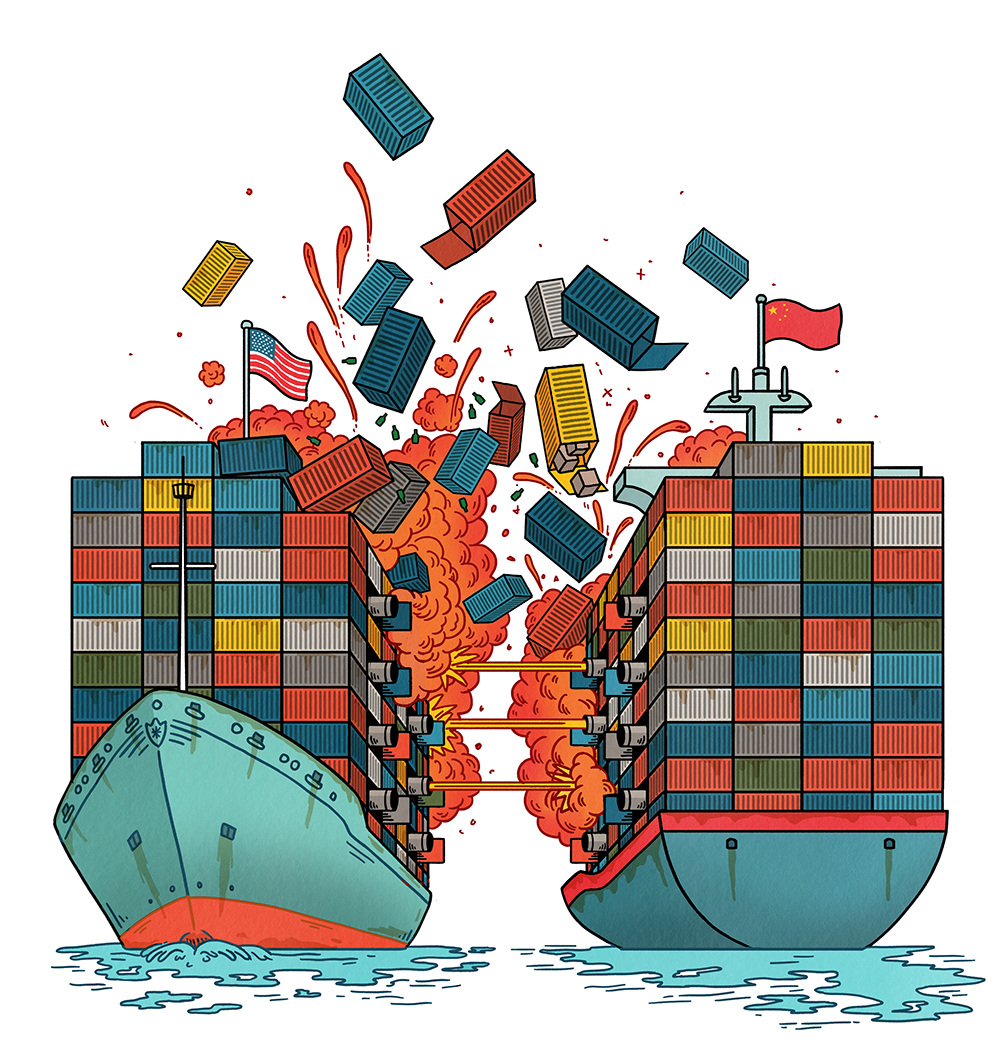Hyperglobalization &
Supply Chain Failure
We must replace the hyperglobalization implemented by decades of corporate-rigged trade agreements that leaves us with brittle, broken supply chains that cause shortages of essential goods and higher prices.
 The COVID-19 pandemic revealed to all that the United States no longer has the capacity to produce and procure essential goods needed to combat a national crisis. Decades of policies and practices that have been dubbed “hyperglobalization” have left the United States largely dependent on other countries for access to the most essential goods.
The COVID-19 pandemic revealed to all that the United States no longer has the capacity to produce and procure essential goods needed to combat a national crisis. Decades of policies and practices that have been dubbed “hyperglobalization” have left the United States largely dependent on other countries for access to the most essential goods.
The U.S. and global economies have been organized to serve a production model focused almost exclusively on “efficiency” and reliant on long, brittle global supply chains and production of many goods in too few countries. The result is that we could neither produce nor obtain sufficient supplies of essential medical supplies needed to save our parents, colleagues, friends and neighbors. And now with a few dominant firms in every sector controlling production in a few locations, we face rising prices because there are too few producers to create competition. Or, as we see in the solar sector where 80% of the supply of solar panels is imported, we can have our supplies cut off if U.S.policy displeases the few major producers.
In the past 25 years, more than 70,000 U.S. manufacturing facilities, which used to produce a diverse array of goods, have been lost. Among the key factors that have contributed to the hollowing out of U.S. domestic production capacity are corporate-rigged trade policies that made it easier and less risky to move production overseas to pay workers less, a lack of disciplines against currency misalignments that undermined domestic firms trying to compete with imported products, and a merger mania enabled by a lack of competition policy, which resulted in the elimination of “redundant” production facilities as a few dominant firms bought up and closed down competitors.
This exposes us to economic, public health, and national security vulnerabilities. We must replace the failed hyperglobalization model with pro-worker, pro-equity, pro-community, pro-environment rules for the economy to promote reliable and resilient supply chains, domestic economic security and infrastructure, climate, public health, and other goals.
